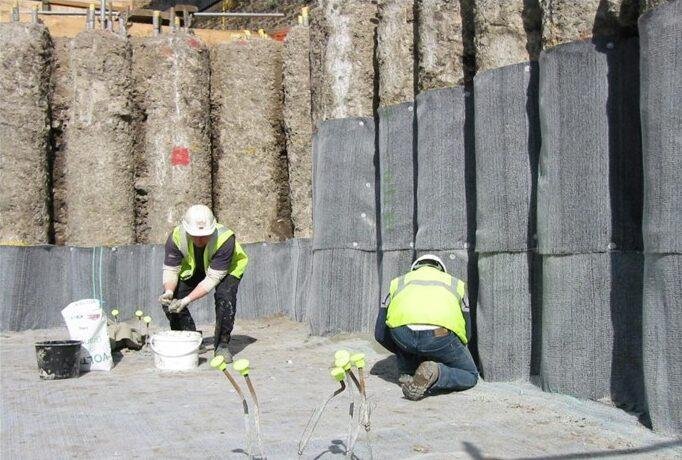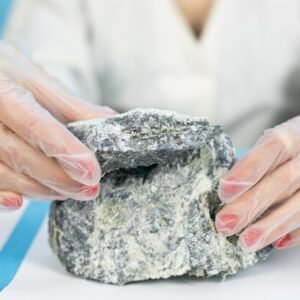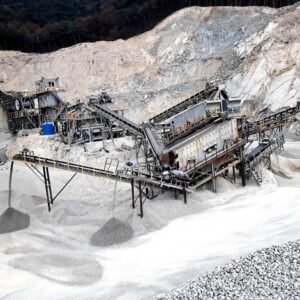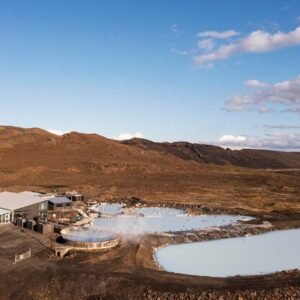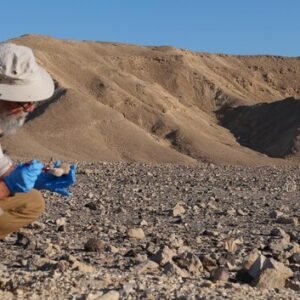Waterproofing is a critical aspect of construction, ensuring that buildings and infrastructure remain durable and resistant to water damage. One of the most effective, cost-efficient, and environmentally friendly solutions for waterproofing is bentonite clay. Bentonite clay has been used for various applications, including in waterproofing systems for basements, tunnels, foundations, and other water-sensitive structures. This natural material boasts impressive properties that make it an excellent choice for water resistance, and its versatility extends beyond construction into industries such as oil drilling, agriculture, and even skincare.
In this article, we will explore what bentonite clay waterproofing is, how it works, its applications, benefits, and potential drawbacks. We will also delve into the science behind bentonite clay, its role in the waterproofing process, and why it is such a popular choice in construction.
What is Bentonite Clay?
Bentonite clay is a naturally occurring absorbent clay that is primarily composed of montmorillonite. Montmorillonite is a type of silicate mineral known for its ability to expand when it comes into contact with water. The main types of bentonite are sodium bentonite and calcium bentonite, with sodium bentonite being more commonly used in waterproofing applications due to its higher swelling properties.
Bentonite clay is derived from the weathering of volcanic ash, which, over time, becomes deposited in various regions of the world. This clay is highly absorbent and forms a gel-like substance when mixed with water. It has been used for centuries in various forms, from ancient civilizations using it for medicinal purposes to modern applications such as drilling fluids and environmental containment.
Also Read:-Benefits of bentonite clay for teeth
Bentonite Clay in Waterproofing: How It Works
Bentonite clay is used for waterproofing primarily due to its unique ability to absorb water and expand. This characteristic allows bentonite to form a solid, impermeable barrier that prevents water from penetrating structures.
When bentonite clay is exposed to moisture, it swells significantly, sometimes increasing its volume by up to 15 times. This swelling process closes off gaps and voids, effectively sealing the material and creating a waterproof barrier. In construction, bentonite is often used in the form of sheets, panels, or powder that can be applied to surfaces that need protection from water infiltration.
The impermeability of bentonite comes from the fact that when it swells, it fills any cracks, joints, or imperfections in a surface, making it difficult for water to pass through. The swelling also creates a kind of self-healing mechanism; if the bentonite barrier is cracked or damaged, it will often heal itself by expanding further to seal the gaps, maintaining its waterproof properties.
Bentonite clay is often combined with other materials to improve its performance and ease of application. One common method involves the use of sodium bentonite, which is typically mixed with a binder and other substances to form a flexible membrane that can be easily applied to building foundations and underground surfaces.
Also Read:-Types of Bentonite Powder
Applications of Bentonite Clay Waterproofing
Bentonite clay waterproofing has a wide range of applications in the construction industry. Some of the most common uses of bentonite clay in waterproofing include:
1. Foundation Waterproofing
One of the most common uses of bentonite clay is in waterproofing foundations. Foundations, especially those of buildings located in areas with high groundwater levels or extreme weather conditions, are particularly vulnerable to water penetration. Bentonite clay creates a durable, waterproof layer that prevents water from entering the foundation and causing damage such as cracks, mold, or structural weakening.
Bentonite waterproofing is often used in both new construction projects and retrofitting older buildings that are experiencing water ingress issues in their foundations. In either case, bentonite forms a long-lasting, low-maintenance waterproofing solution that helps protect the structure from water damage.
2. Basement Waterproofing
Basements are another area where waterproofing is essential. These underground spaces are prone to water seepage from external sources such as groundwater, heavy rainfall, and floods. Bentonite clay is used to create a waterproof barrier on the exterior of basement walls to prevent moisture from entering. The expansive nature of bentonite clay ensures that even small cracks or joints in the walls are sealed, making it an ideal solution for basement waterproofing.
3. Tunnel and Underground Structures
Tunnels and other underground structures also benefit from bentonite clay waterproofing. Bentonite is often used in tunnel construction to prevent water ingress and maintain the structural integrity of these underground spaces. The clay’s ability to expand and form an impermeable barrier makes it a reliable choice for tunnel liners, particularly in areas where groundwater is a concern.
Bentonite clay is also used in the construction of other underground structures, such as parking garages, subways, and sewage treatment plants, where water resistance is crucial.

4. Roofing Waterproofing
While bentonite clay is more commonly associated with foundations and basements, it can also be used in roofing systems. Bentonite clay is sometimes added to roofing membranes to enhance their water-resistant properties. This helps to protect roofs from leaks and water damage, prolonging the lifespan of the roofing materials and the building itself.
5. Landfills and Environmental Containment
Bentonite is often used in environmental containment applications, such as lining landfills and containment ponds. Its swelling properties make it an effective barrier against leachate and other pollutants that can seep into the ground. By forming an impermeable layer, bentonite helps protect the surrounding environment from contamination, making it a crucial material in waste management and environmental protection.
6. Waterproofing of Water Storage Systems
Bentonite clay is sometimes used to waterproof water storage systems such as reservoirs, water tanks, and dams. The expansive properties of bentonite make it an excellent choice for sealing joints, cracks, and seams in these systems, ensuring that water does not leak out or enter from external sources.
Benefits of Bentonite Clay Waterproofing
Bentonite clay offers numerous advantages that make it a popular choice for waterproofing applications. Some of the key benefits of using bentonite clay in waterproofing systems include:
1. Effective Waterproofing
The primary benefit of bentonite clay is its ability to provide highly effective waterproofing. Its swelling properties ensure that even small cracks or voids are sealed, preventing water from entering. Bentonite creates a durable, long-lasting barrier that can withstand the pressure of groundwater, rainfall, and other water sources.
2. Self-Healing Properties
Bentonite’s self-healing ability is another significant advantage. If the waterproofing layer is damaged, the clay can expand to fill any gaps, cracks, or voids that may form, restoring its waterproof properties without the need for repairs or maintenance. This feature makes bentonite waterproofing a reliable and low-maintenance solution.
3. Environmentally Friendly
Bentonite is a natural material, and its use in waterproofing is more environmentally friendly compared to some synthetic waterproofing options. It does not release harmful chemicals into the environment and can be disposed of safely when no longer needed. Additionally, bentonite does not require the use of harsh solvents or adhesives, making it a sustainable choice for green building projects.
4. Cost-Effective
Compared to some other waterproofing methods, bentonite clay is relatively affordable. Its long-term effectiveness and low maintenance requirements make it a cost-effective solution for both new construction and renovation projects. The material is also widely available, which helps keep prices down.
5. Versatility
Bentonite clay can be used in a variety of waterproofing applications, from foundations and basements to tunnels and landfills. Its versatility makes it a go-to material for waterproofing professionals, as it can be adapted to suit different project needs. Furthermore, bentonite is available in various forms, including powder, sheets, and panels, making it easy to apply in different construction settings.
6. Easy Application
Bentonite waterproofing is relatively easy to apply compared to some other methods. It can be spread on surfaces in the form of a slurry or applied as pre-manufactured bentonite panels. In many cases, it can be applied directly to the substrate without the need for additional primer or bonding agents. This ease of application can reduce labor costs and project timelines.
Drawbacks of Bentonite Clay Waterproofing
While bentonite clay is a highly effective waterproofing material, it does come with a few potential drawbacks:
1. Sensitivity to Saltwater
Bentonite clay can be sensitive to saltwater, which may affect its swelling properties. In areas where saltwater is prevalent, such as coastal regions or areas with brine contamination, bentonite may not perform as effectively as it would in freshwater environments.
2. Potential for Shrinkage in Dry Conditions
While bentonite clay expands significantly when it absorbs water, it may shrink if exposed to prolonged dry conditions. This could result in cracks or gaps in the waterproofing layer, potentially reducing its effectiveness.
3. Requires Proper Installation
Bentonite waterproofing must be installed correctly to achieve the desired results. Improper installation, such as inadequate coverage or insufficient bonding, can lead to leaks or premature failure of the waterproofing system.
4. Limited Performance in Extremely High Water Pressure Situations
Although bentonite performs well in most situations, it may not be suitable for use in environments with extremely high water pressure, such as in deep underground locations or highly saturated areas. In these cases, additional reinforcement or alternative waterproofing materials may be required.
Advantages of Bentonite Clay in Waterproofing Applications
One of the key advantages of bentonite clay in waterproofing is its ability to provide a seamless barrier. When bentonite clay is applied as a slurry or membrane, it forms a continuous and uniform layer over the surface. Unlike other waterproofing materials such as bitumen or asphalt, which may have seams that could potentially be weakened over time, bentonite’s expansive nature ensures that the barrier remains intact. This seamless application is particularly useful in large-scale projects, such as the waterproofing of tunnels or foundations for large buildings, where any gap or seam could lead to the failure of the system and significant water damage.
Additionally, bentonite clay is highly effective in mitigating the effects of water-related structural issues. Water damage to buildings can lead to issues like mold growth, rusting of steel reinforcements, and erosion of soil surrounding the structure. These issues often lead to costly repairs and the potential for significant structural failure. Bentonite acts as a protective shield that prevents water from infiltrating sensitive areas, preserving the integrity of the building and its foundation. Moreover, its ability to prevent the passage of water helps in maintaining a dry and safe indoor environment, reducing the risk of mold growth, which can cause health problems.
Another significant advantage of bentonite clay is its long-term performance. Unlike some synthetic waterproofing materials that may degrade over time due to UV exposure, temperature fluctuations, or chemical reactions, bentonite is highly resistant to environmental stressors. The clay’s natural composition makes it resistant to decay, and it can maintain its waterproofing properties for many years with minimal maintenance. As a result, bentonite is a preferred choice for projects requiring long-lasting, durable solutions, such as in infrastructure projects or when waterproofing high-value assets like dams or underground storage facilities.
Lastly, bentonite’s application in waterproofing offers an additional benefit: its low carbon footprint. The extraction and processing of bentonite generally involve fewer environmental impacts than many other industrial waterproofing materials. It is mined from natural sources and can be processed with minimal use of harmful chemicals. The sustainability of bentonite clay as a waterproofing material aligns well with green building initiatives, which prioritize reducing the environmental impact of construction. Thus, builders and architects are increasingly turning to bentonite clay as a way to meet sustainability goals while ensuring the durability and safety of their structures.
CMS Industries: India’s Largest Bentonite Mines Owner, Processor, and Exporter
India is home to some of the world’s largest and most diverse deposits of bentonite clay, and one of the leading players in the bentonite industry is CMS Industries. As a prominent owner, processor, and exporter of bentonite clay, CMS Industries has established itself as a key supplier of high-quality bentonite products for various applications, including waterproofing.
With decades of experience in the mining, processing, and export of bentonite, CMS Industries has earned a reputation for providing reliable and cost-effective solutions to customers around the globe. The company’s state-of-the-art processing facilities ensure that the bentonite products meet stringent quality standards, making them ideal for use in waterproofing and other industrial applications.
CMS Industries takes pride in its commitment to sustainable and environmentally friendly practices. By adhering to international standards and maintaining a focus on quality, CMS Industries plays a crucial role in ensuring the availability of top-tier bentonite products for the construction industry, helping to meet the growing demand for effective and eco-friendly waterproofing solutions.



